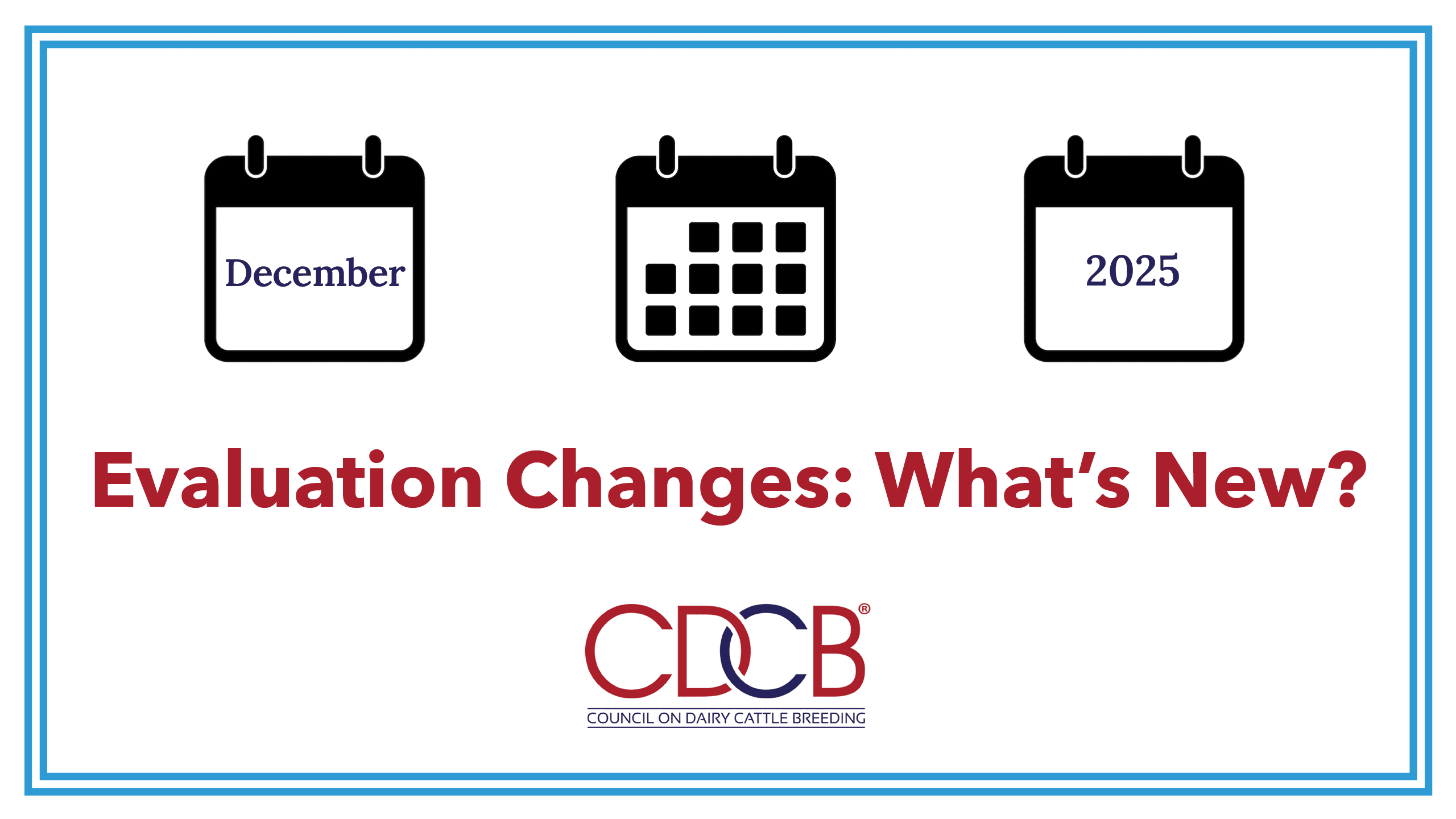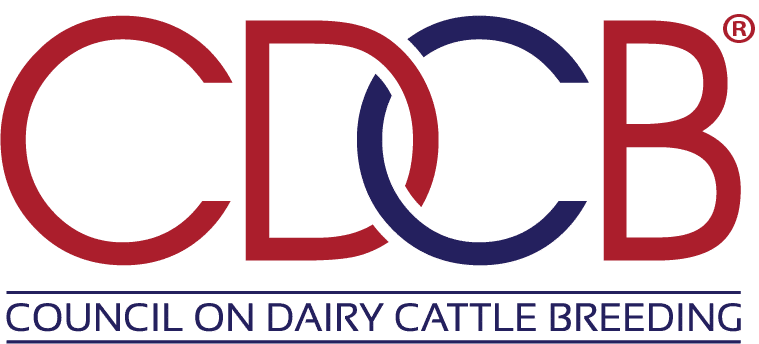December 2025 Evaluation Changes: What’s New?
Written by CDCB
November 05, 2025

The December triannual evaluations will include health and type trait edits as well as operational efficiency improvements.
New health edits
By Kristen Gaddis
The data extraction process for health phenotypes was refined to exclude records from cows that changed herds within a single lactation. This adjustment ensures that animals do not have multiple health phenotypes for the same lactation across different herds. The overall impact on evaluations is expected to be minimal, as correlations among traditional health PTAs remained high during testing over the August 2025 evaluation — ranging from 0.97 for milk fever resistance to 0.99 for both displaced abomasum and metritis resistance. Minor effects may occur at the individual level if a cow (or a bull’s daughter) changed herds during lactation.
Holstein Association USA edits on female type data
By Sam Comstock, Jason Graham, and Ezequiel Nicolazzi
Data used for genomic evaluations of type traits will now exclude more than 1.1 million animals that did not meet all requirements for traditional type evaluation, most of which were born before 1998. These animals were previously included in a supplementary evaluation to generate predictions more accurate than simple parent averages. However, advances in genomic prediction now provide superior accuracy for animals without linear trait data, rendering the inclusion of these older animals unnecessary. Fewer than 4,000 of these animals were part of the Holstein type reference population of over 750,000.
A test run based on the August 2025 evaluation showed a correlation exceeding 99.99% across all animals, with no impact observed on A.I. bulls. Animals with phenotypes excluded from the evaluation — whether reference or non-reference — will show greater variability than usual as a result of this exclusion.
Genomic evaluation software efficiency upgrade
By Jay Megonigal and Ezequiel Nicolazzi
The genomic evaluation software and pipeline have been modified to improve efficiency and eliminate unnecessary operations. Following recent updates to the Interbull evaluation schedule, international MACE evaluations are now available on the first day of the genomic evaluation process, rendering several previously required steps obsolete.
A test run based on the August 2025 evaluations showed correlations exceeding 99.9% across all traits and breeds. Most of the observed variation was due to more up-to-date information being incorporated earlier in the genomic evaluation process.
A.I. bulls were only minimally affected by the pipeline change, with most of the variation linked to rounding differences. However, evaluation codes for bulls may differ in the bull evaluation file, and minimal changes are expected for unevaluated traits in the calving trait files for some international bulls.
Transition from Anonymous FTP to Secure HTTPS Access
By Frank Ross
As part of CDCB’s continued commitment to improving data security, usability, and system reliability, CDCB will transition from anonymous FTP to HTTPS-based access for public file downloads and data distribution on February 2, 2026. The new HTTPS site is already available at https://webconnect.uscdcb.com/base/ftp/pub/. This change provides enhanced encryption, improved access control, greater compatibility with modern systems, and more robust monitoring. Files currently hosted on the anonymous FTP server can now be accessed through the HTTPS link above using a web browser, command-line tools (curl, wget), or WebDAV clients (such as WinSCP). Please note that FTP/SFTP-only clients (like FileZilla) will no longer work for this public access. This update does not affect private, authenticated SFTP exchanges, which remain fully operational. Users are encouraged to begin transitioning to HTTPS access to ensure a smooth changeover before the February 2026 deadline.
